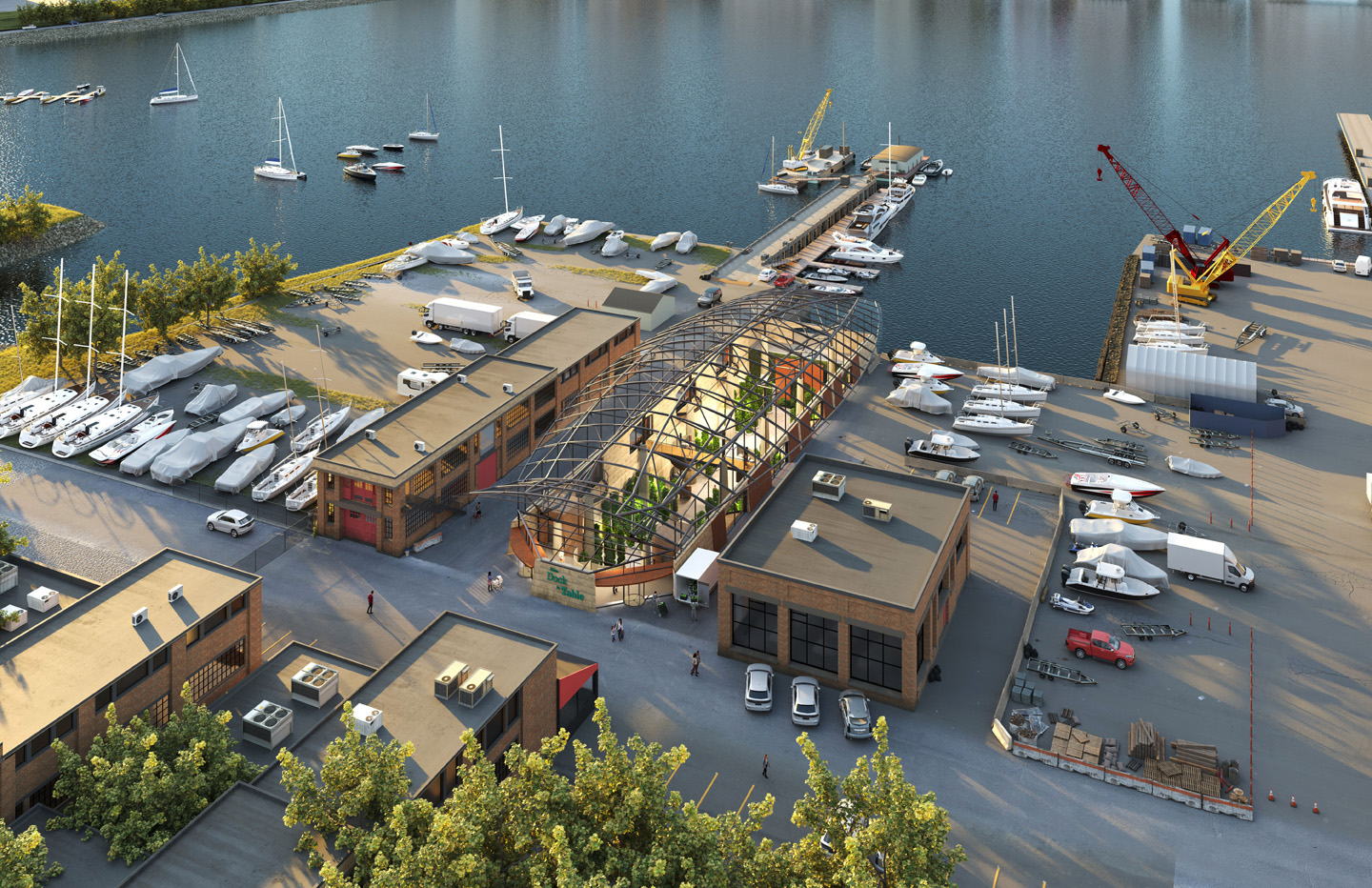Dry Dock Greenhouse
Unbuilt Planning and Design
Project type: Conceptual
Honor
Project name: Dry Dock Greenhouse
Project overview: We propose converting a long-neglected waterfront site into a Dry Dock Greenhouse. Powered by renewable energy, this new facility will offer public spaces and amenities focused on agricultural produce. Built in 1942, this East Boston dry dock is currently occupied by a fuel storage station—not very green. By closing the dock gate, the dry dock can be pumped out and inhabited by new uses. The newly captured volume of below grade space will be covered by a glass canopy. Powered by building-integrated photovoltaics (BIPV), the greenhouse utilizes vertical farming methods to provide year-round, local, healthy food. Vertical farming uses less land due to an efficient arrangement of plants, organized in either columnar structures or rotating trays. A quarter acre vertical harvest farm can produce the same number of crops as 40 acres of farm land. The system also uses less water than farming, as it can be recycled and recirculated. The BIPV canopy also produces 56,000KwH/year, enough energy to power about 5.5 houses for a year. The Dry Dock Greenhouse provides a unique urban amenity for the area and transforms an underutilized industrial site into a higher, regenerative use.
Project location: Boston, Massachusetts
Firm name: Paul Lukez Architecture
Architect of Record: Paul Lukez Architecture
Jury comments: The project demonstrates a holistic approach to sustainability. It is the culmination of many sustainability strategies such as reuse (material), generate (power), produce (food), activate (waterfront), and engage (community), all adding up to one coherent design outcome.
Engineers: Norian Siani Engineering






